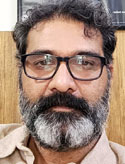
By Arshad Alam, New Age Islam
11 July 2016
There are two ways in which the current discourse on terror obscures any meaningful discussion on the subject. Both were apparent during the holiest Muslim month of Ramzan which will go down in history as one of the bloodiest. In terrorist literature, Ramzan is called the month of jihad and action. True to their calling, they were able to murder and maim scores in Istanbul, Baghdad and Dhaka, not to mention other smaller acts of so-called jihad.
In all these acts of terror, the involvement of ISIS was established, but the worldwide reaction to the murderous campaigns was decidedly different. Attacks in Istanbul and Dhaka received wide condemnation and were debated over and over again as compared to the Baghdad attack which was by far the deadliest. There were no marches, no candle light vigils for the nearly 250 Muslims dead (and counting) in the Baghdad terror attacks.
What distinguishes Baghdad from Istanbul or Dhaka is that those dead in the former are all Muslims, whereas a majority of those dead in the latter were foreigners.
Are we to believe that the death of Europeans is more important than those of the natives? This spectacle of asymmetrical mourning, which captures mind and media space, has the effect of positing terrorism as a war between Islam and the West.
This theorising is empirically false as majority of the victims of terrorism happen to be Muslims. And that’s really the problem: there is a refusal to understand terrorism directed primarily towards fellow Muslims. That being the case, Muslims worldwide should be concerned about the phenomenon as something which concerns them and therefore should be in the forefront of waging a battle against this hateful scourge. What we see however, is just the opposite. Scores of Muslims are in complete denial over the issue.
Conspiracy Theories
More importantly, many of them have bought into conspiracy theories which claim that all acts of terrorism is done by the Americans or the Israelis to give Islam a bad name. Zakir Naik is not the only one who believes that 9/11 was an insider job; there are millions of other Muslims like him. In their refusal to see that they have a problem at hand, Muslims buy into fanciful conspiracy theories and gloat in a largely self-perpetuated victimhood narrative.
Moreover, aided by the Ulema and others who hardly have any sociological understanding of religion, pronounce from the pulpit that Islam is essentially a religion of peace. We have heard this after 9/11 and more recently after the Dhaka attacks. This is where the second obfuscation starts: if you believe that Islam is essentially a religion of peace, then there is hardly anything to do.
Despite the evidence to the contrary, this refusal to believe that Islam, like any other religion or ideology, can itself be a source of violence, can only lead Muslims to believe in nonsensical theories which understands Islamic terrorism as a grand design to malign Muslims. The need of the hour therefore is that Muslims must understand and accept that there are some verses in Quran which actively exhort followers to kill in the name of Islam. More than that there are various traditions of the Prophet, considered as holy as the Quran by Muslims, which also do the same.
This is not to say that of all the religious traditions, Islam alone subscribes to the idea of violence. The same goes for the holy books of the Jews and Christians also. However, owing to a number of factors, the Bible or the Torah do not hold the same important place in the imagination of those who follow them as compared to the Quran. Moreover, the march of secular polity has also made these books less important.
The Quran is different: most of the Muslim world still pledges that it will act in accordance with the teachings of the Quran. In short it is the fountainhead of most laws through which people are governed in Muslim lands. A refusal to recognise that it can be the source of violence and legitimizing that violence can only mean that Muslims have refused to engage with the text within the context of modernity.
It also means that Muslims would have great problems with questioning some of the verses of the text itself. It is not surprising therefore that even after hundreds of years, the Quran today is not arranged chronologically making a contextual reading of the text nearly impossible. Since the Quran does not speak for itself, the hegemonic powers within the Muslim world have overwhelmingly made it into a text of violence against the infidel. Those who think otherwise hardly have the reach and the capacity to reach audiences which the former have.
Terror always had a name. Whether it is done in the name of secular nationalism or inspired by religion, it is easy to identify the ideology behind the terror. If today Islam is being linked to acts of terrorism and violence, then the solution is not close our eyes and blame it on others. The courageous thing to do will be take the accusations seriously, engage with it and see if we are partly to be blamed for the deep mess which we find ourselves in.
A NewAgeIslam.com columnist, Arshad Alam is a Delhi based writer.




 Moderate Islamist here
Moderate Islamist here


0 comments:
Post a Comment